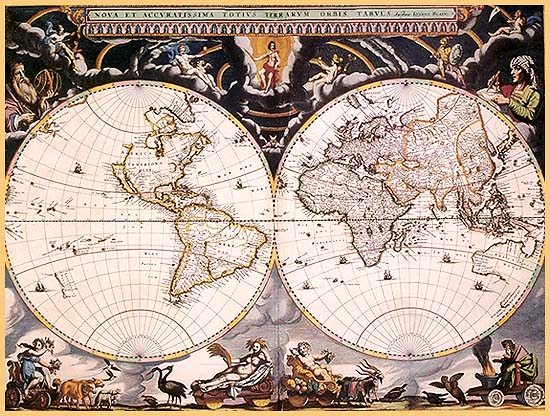On November 4-6 Keene State College hosted the biennial World Affairs Symposium, “From Local to Global: A Centennial Symposium.” The 2009 Symposium examined issues raised by artists, educators, scholars, planners, and community leaders whose work deepens our understanding of the complex phenomena recognized as “globalization.” Programming and events explored the impact of “the global” on cultures, environments, economies, and identities defined as “local.” The Symposium was organized around a set of questions that included: How do perceptions of the global shape discourses of the local? When do localized discourses and cultural practices determine limits and definitions of global? Where do these concerns direct communication between people, especially within the praxis of teaching and learning? When does local knowledge become globalized? How can global information be localized?
My contribution to our sixth biennial symposium was “Teaching the Local in an Age of Globalization.” My goal was to bring together a panel of speakers whose teaching and writing has deepened our awareness of the natural and cultural systems of which we are a part. I wanted to feature professors whose students have experiences outside the classroom (in the towns and cities and farmlands and forests near their colleges); whose courses emphasize interdisciplinary learning (integrating the study of literature and story with the study of history, nature, and science); and collaboration (with local residents, towns, and organizations).
The speakers I invited were Pavel Cenkl, of Sterling College, John Elder, of Middlebury College, John Harris, of Franklin Pierce University, and Kent Ryden, from the University of Southern Maine—all of whom have made notable contributions to the study of the nature and culture of New England. Pavel Cenkl is Dean of Academics at Sterling College in Craftsbury Common, Vermont where he also teaches courses in humanities and regional studies. He has recently organized two summer institutes focusing on the rural heritage of the Northeast. Pavel has published This Vast Book of Nature: Writing the Landscape of New Hampshire’s White Mountains, 1784-1911 and, more recently, edited the collection of essays, Nature and Culture in the Northern Forest: Region, Heritage, and Environment in the Rural Northeast. He lives on a steadily expanding homestead in Craftsbury with his wife and son. John Elder has taught English and Environmental Studies at Middlebury College since 1973, where he has taught courses in American nature writing, Romantic English poetry and contemporary American poetry of nature, Japan’s haiku tradition, and community-based courses that focus on the future of Vermont’s towns and farms. John’s three most recent books have all combined discussion of literature, descriptions of the Vermont landscape, and personal memoir. He and his wife Rita live in the Green Mountain village of Bristol and operate a sugarbush in the adjacent town of Starksboro with their grown children. Kent Ryden teaches in the American and New England Studies program at the University of Southern Maine, of which he was director for the past four years. Kent is the author of Mapping the Invisible Landscape: Folklore, Writing, and the Sense of Place and Landscape with Figures: Nature and Culture in New England, as well as many articles and chapters on topics in ecocriticism, cultural geography, and regional literature. He has a Ph.D. in American Civilization from Brown University, and is a recipient of the American Studies Association’s Ralph Henry Gabriel Prize. And John R. Harris is Director of the Monadnock Institute of Nature, Place and Culture at Franklin Pierce University, and a faculty member in the Environmental Science and American Studies Departments. His work on the study of place in the Monadnock Region has appeared in Where the Mountain Stands Alone (University Press of New England, 2007) and Teaching North American Environmental Literature (Modern Language Association, 2008). John and his wife Susie have lived with their three daughters in Westmoreland since 1985.
Pavel’s presentation focused on the Work-Learning-Service program at Sterling College and its emphasis on place and identity, The program’s emphasis on cultivating a sense of place provides opportunities to explore the global frameworks of local places. John elaborated on his interest in the global context of the local-food movement in New England. John described teaching a community-based course called “Farm Stories,” in which students read the literature of farming, interview, and work on stories about families who operate eleven farms near the Middlebury campus. He used both Virgil’s Georgics and recent farmers’ protests in Brussels relate the challenges of Vermont farmers to a global context. John also reported on organizing two conferences that speak to this topic: one in Middlebury on local food and culture in Vermont, Quebec, and France and one in Siena on local food and culture in New England and Tuscany. Kent’s presentation focused on the cultural politics of place in Falmouth, Maine, asking which place-defining narratives get privileged, and why, and what the implications of that are. He also touched on how northern New England places have historically existed in a kind of economic and cultural “colonial” relation to southern New England. Finally, John Harris reflected on distinctive features of the New England identity over time and the strong sense of community he finds in our region through his discussions with local town residents around issues of town government, community size and the importance of celebrating communal history.

